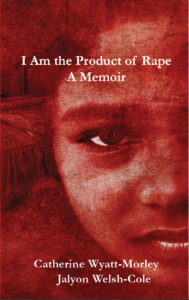The Truth About Female Genital Mutilation
Female Genital Mutilation (FGM) is a cultural practice started 2000 years ago that involves cutting or removing female genital tissue. An estimated 100-140 million girls and women worldwide are currently living with the consequences of FGM. This procedure has no religious basis or medical benefits and oftentimes can lead to death. The causes of FGM include a mix of cultural and social factors within families and communities. An estimated 3 million girls undergo the procedure annually. Young girls undergo female circumcisions sometime between infancy and the age of 15.
The type and severity of the procedure used varies depending on the ethic group, country and socioeconomic status. In some countries only small cuts are made but in others the entire clitoris and labia is removed only leaving a small hole. Female circumcision is performed without the care of medically trained personnel and without anesthesia. The girl is held down by older women to prevent movement and is cut using a razor blade, scissors or a knife. In the more severe cases, any available sharp object such as a tin lid or broken glass is used. The girl will then have to be stitched up and her legs bound for up to 40 days. Victims of FGM often combat psychological issues as well as suffer from physical consequences.
In addition to psychological effects, the immediate physical complications include: severe pain, shock, hemorrhaging, and bacterial infection. The long term complications are more severe and include: chronic pelvic infections, sexual dysfunction, increased risk of childbirth complications, and infertility.
Many assume that FGM is only an issue in other parts of the world such as Africa and Asia. However, it is becoming a problem in the United States as well. The practice of FGM is so ingrained in some cultures that it defines members even after they move to other parts of the world. The Centers for Disease Control and Prevention (CDC) estimates that between 150,000-200,000 girls in the US are in danger of being taken overseas during their time off from school to undergo vacation cutting. Some families even pay to bring someone from their homeland to the U.S. to perform circumcisions.
FGM is seen as a human rights issue and is recognized on the international level. Although, banned in the U.S. since 1996, there is almost no legal protection against FGM and it has become a serious issue in most urban centers in the U.S.
Despite some legislation and society’s views on the issue, change must start on the cultural level to end this brutal and inhumane practice.
Cancer And HIV/AIDS A Tale Of Two Diseases
Thanks to better treatments, people with HIV/AIDS are living longer. Although, fewer people now die from AIDS, cancer is emerging as an important cause of death for the infected population. This can be attributed to the fact that these individuals often have more exposure to other viruses or agents that cause cancer, their immune systems are somewhat weakened and the risk of cancer increases with age. However, types of cancer that have traditionally been associated with AIDS progression are on the decline in the HIV/AIDS population while other types of cancer are on the rise. The most common non-AIDS-defining cancers in patients with HIV are anal, lung and liver cancers. As well as Hodgkin lymphoma. In 2001 through 2005, these four cancers made up nearly half of all non-AIDS-defining cancers.
In order to combat the increasing rates of cancer in individuals infected with HIV/AIDS, medical experts recommend prevention, screening, treatment and avoiding exposure to other risk factors.
W.O.M.E.N.’s H.O.U.S.E. Informational
This is your unique opportunity to participate in the forming of W.O.M.E.N.’s next venture: W.O.M.E.N.’s H.O.U.S.E. (Home Of United Self Empowerment). This facility will provide a holistic approach to comprehensive services that integrate treatment and prevention in one location driven by a research environment.
We will hold an informational committee meeting:
When: Monday, March 12, 2012
Where: Conference Room at W.O.M.E.N.
417 Welshwood Drive, Suite 303
Nashville, TN 37211
Time: 12 p.m. – 1 p.m. or 5 p.m. – 6 p.m.
Capacity is limited, please R.S.V.P. to:
[email protected] or 615-256-3882.
Join Me On The Bridge
Please join us to celebrate International Women’s Day by gathering on the Broadway Street Bridge (near Union Station Hotel) in downtown Nashville.
When: March 8, 2012
Time: 11:00 a.m. – 1:00 p.m.
Where: Broadway Street Bridge
On this date, women will gather on bridges worldwide to celebrate peace and stand in solidarity with women in war zones who struggle daily for peace. Please join us in standing with these women to give them strength and to show we support their demands for peace and equality.
Please bring banners and signs in support of women and peace. See you on the bridge!
For more information, go to http://www.joinmeonthebridge.org
Invisible Heroes
February is Black History Month recognizing all the African Americans who have made a difference. Throughout this month the most famous individuals are thrust into the forefront and celebrated for their contributions to society. However, there are a large number of African Americans not mentioned.
These are our invisible heroes. We tend to forget about those that were left out of the history books in favor of the more famous individuals. Invisible heroes are just as worthy of praise. For every Dr. Martin King, Jr. and Harriet Tubman there are three others that contributed just as much to society, however they are often overlooked.
People like Dr. Daniel Hale Williams, the first person to perform open heart surgery was African American. Or Garrett Morgan who invented the gas mask and traffic signal. Notable accomplishments by African American women are also silenced. For example, Jane Bolin was the first African American woman to become a judge as well as the first to graduate from Yale Law School and join the New York City Bar Association. And Althea Gibson, the first African American to play in and win the United States National Tennis Championship and Wimbledon.
It is important to recognize and celebrate everyone both famous and the not so famous every day not just in February.
W.O.M.E.N. challenges you to research and learn more about the invisible heroes. There is more to black history than what is taught in school!
Speak And Tweet Poetry Slam
Meet us downtown at BB Kings from 7PM-9PM for our Speak & Tweet Poetry Slam. Enjoy food, drinks, music and poetry.
This event open to the public.
Catherine Wyatt-Morley Wages War Against HIV/AIDS
In 1994, after being diagnosed with HIV, Catherine Wyatt-Morley was given 6 years to live. Almost eighteen years later, she’s still fighting while also helping others along the way.
Wyatt-Morley recently sat down with The Tennessean and Voice of America to discuss her struggles, triumphs and what she is doing to help others who are infected/affected by HIV/AIDS.






